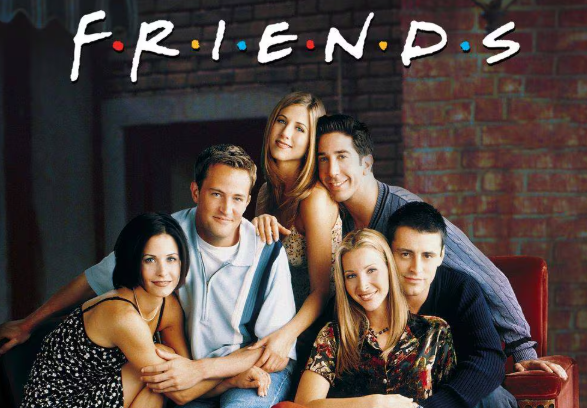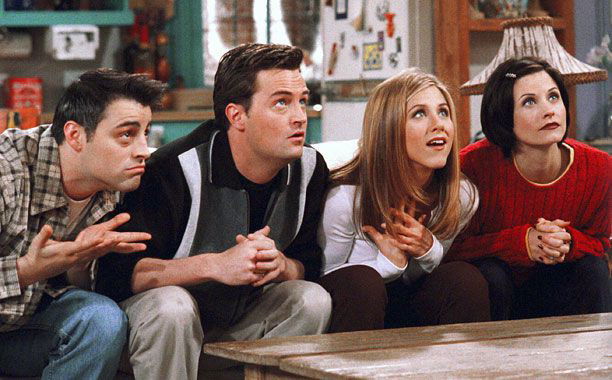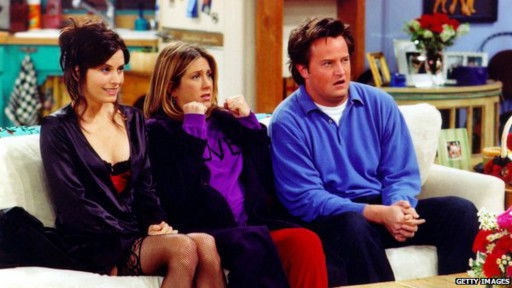Friends: Love It or Hate It?

Lately, it has almost become fashionable to say you don’t like Friends and dissect its flaws. At the same time, loyal fans who love the show defend it passionately.
For many, Friends is more than a sitcom: it’s a nostalgic portrait of the ’90s, a reminder of a time when TV moved at a different pace. The cast chemistry, lighthearted and timeless humor, and balanced mix of comedy and emotion captivated millions worldwide. For those who originally watched it, the short, bingeable episodes, witty dialogue, and gradual growth of the characters created an emotional connection that still draws audiences back to “visit” the friends at Central Perk even decades later.
However, for younger viewers or those accustomed to modern TV shows, Friends may seem outdated. Certain jokes haven’t aged well, the series lacks diversity, and some plotlines (especially the long-running romances) can feel dragged out. The traditional sitcom style, with laugh tracks in the background, predictable plots, and exaggerated stereotypes, makes it challenging for some to understand why it was so popular in the first place.
Ultimately, Friends serves as both a cultural milestone and a reflection of its time. Watching it today is like stepping into a specific moment in TV and pop culture history, with both its strengths and flaws. This experience might be delightful for some and frustrating for others.
To help you decide if Friends is worth your time, we’ve outlined 10 reasons to watch and 10 reasons that might make you skip it:
10 Reasons to Watch Friends

Excellent Cast Chemistry
From the first episode on, the natural connection between the six main actors is undeniable. This isn’t something that can be forced: many shows have tried and failed. This chemistry makes their interactions believable and brings authenticity even to mundane scenes.
Light Humor That Stands the Test of Time
Even though some jokes rely on ’90s and 2000s references, much of the humor comes from universal situations like work issues, awkward dates, or friendship mishaps. It’s a brand of humor that translates well across generations.
Unforgettable Characters
Each character has unique traits that set them apart and keep the narrative flowing. Monica is competitive and highly organized, Chandler is the sarcastic joker, Rachel evolves from spoiled to independent, Ross is a nerdy romantic, Joey is the carefree and lovable fool, and Phoebe is delightfully eccentric and unpredictable. Their differences ensure that most viewers can relate to at least one character or their struggles.
Relatable Slice-of-Life Scenarios
Whether it’s dealing with annoying neighbors, juggling finances, or navigating tricky relationships, many of the show’s storylines reflect everyday adult experiences. This relatability creates an instant connection with viewers.
Impeccable Comic Timing
The success of the humor doesn’t just come from the writing but also the actors’ delivery. Their rhythm, comedic pauses, and reactions elevate the material, keeping the jokes fresh even decades later.
Short, Binge-Worthy Episodes
With an average runtime of 22 minutes per episode, Friends is perfect for anyone looking for quick and enjoyable entertainment in a busy schedule.
Smart and Well-Written Dialogue
The dialogue in Friends strikes a balance between clever jokes, puns, and heartfelt moments. Conversations feel natural and genuine, making relationships on screen feel effortless and immersive.
A Mix of Comedy and Emotional Depth
Although Friends is primarily a sitcom, it doesn’t shy away from emotional moments. Episodes about goodbyes, reunions, or even loss add depth to the show and prevent it from feeling shallow.
Character Growth Over 10 Seasons
While their core personalities remain intact, the characters grow and evolve across the series. They change jobs, face personal challenges, and develop their relationships, giving the show depth and rewarding long-term viewers.
A Great Starting Point for Sitcoms
If you’re new to sitcoms, Friends is an approachable and beginner-friendly choice: it features straightforward arcs, humor that’s easy to understand, and storylines designed to entertain without requiring prior knowledge.
10 Reasons NOT to Watch Friends

Humor That Hasn’t Aged Well
Some jokes, particularly those centered around masculinity, homosexuality, or physical appearance, reflect views from the ’90s that now feel outdated, prejudiced, or insensitive.
Lack of Inclusivity
Friends made little effort to represent diversity, with very few non-white or LGBTQIA+ characters taking on meaningful roles in 10 seasons. This can feel like an incomplete and unrealistic version of New York City, even by the standards of the ’90s.
Predictable Story Structures
The show follows the classic sitcom formula: a problem arises, chaos ensues, and everything is resolved neatly by the end of the episode. For those who prefer less predictable storytelling, this structure can come across as repetitive and uninspired.
Overdone Stereotypes
Characters like Joey as the “dumb but handsome guy” and Monica as the “neurotic neat freak” can sometimes feel overly exaggerated. The reliance on caricatures leaves certain episodes lacking nuance.
Problematic Relationships Romanticized
The on-again, off-again dynamic between Ross and Rachel is riddled with issues like jealousy, manipulation, and poor communication. At times, the show presents these as romantic rather than toxic, which may not sit well with some viewers.
Uneven Quality Across Seasons
Not every season of Friends hits the same level of quality. Certain story arcs drag on, and some episodes feel like filler. A tighter overall run might have avoided unnecessary subplots, like one between group members who lacked any genuine chemistry.
Too Many Inside Jokes
As the show progresses, the humor becomes more dependent on running gags and references to earlier episodes. For new viewers, this can feel alienating, as if they’re jumping into the middle of a conversation they don’t fully understand.
Outdated Laugh Tracks
The use of laugh tracks after every punchline can feel artificial for viewers accustomed to modern-day comedies that rely solely on the jokes to land without background effects.
Relationship Drama That Drags On
Many of the show’s romantic storylines, especially Ross and Rachel’s, stretch across multiple seasons, with too many breakups and reconciliations to count. The lack of resolution can frustrate viewers who prefer more decisive storytelling.
Might Feel Too “Soft” Compared to Modern Comedy
Fans of shows like The Office, Brooklyn Nine-Nine, or Fleabag may find Friends too light in tone, lacking the same level of wit, irony, or complexity that defines these more contemporary series.
Conclusion
Which of these reasons resonated most with you? Did they convince you to give Friends a try or take a pass?
Share your thoughts in the comments, we’d love to hear them!












— 코멘트 0
, 반응 1
첫 댓글을 남겨보세요